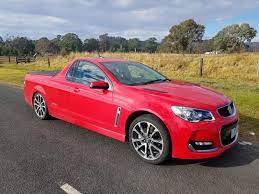Asset depreciation claims for 2023/24

You don’t know depreciation limits for 2023/24? I don’t blame you for it is not at all clear.
The instant asset write-off brought in during covid was in place until 30th June 2023.
You may have heard that in last month’s Federal Budget, the limit was to be increased from $1,000 to $20,000 for next financial year. But that hasn’t been passed into law yet.
It was announced in last year’s Federal Budget that the limit for 2023/24 was to be $20,000. Only problem is that hasn’t been passed into law yet either! But there is some good news behind that. An amendment has been brought forward to lift the limit for this financial year to $30,000. If only they would pass the bill!
TIP The $20,000 limit (or is that $30,000?) is the ex GST amount.
TRAP being an ex GST amount, beware of buying a car costing say $20,900 (assuming only a $20,000 limit is passed into law) bought privately. Being private there will be no GST so the GST exclusive price is over the limit.
Should I buy an asset I need costing more than $20,000 before July?
Yes – Assets costing more than $20,000 result in a15% depreciation claim even if bought on the last few days of the year. Depreciation claimed in subsequent years will then be 30% of the reduced balance.
So if you by a $30,000 asset on 28th June, your business can claim $4,500 of depreciation in 2023/24 and then $7,650 in 2024/25.
If buy the same asset on 3rd July, your business will have no claim for this 2023/24 year and only $4,500 in 2024/25.
Only buy assets you need!
Depreciation is like any other expense – it’s a deduction which reduces your tax. But if your business is a company then at the 25% small business tax rate, you will save $7,500 in tax over the years. Which means you will have paid the other $22,500.
How should I finance an asset or pay for it?
It depends.
Depreciation (allocating cost over a number of years) reflects that an asset is used to produce income over many years. So it is often appropriate to seek finance to fund the purchase and match your cash flow to the use of the asset.
That said, some assets are hard to finance. Computers lose value as soon as they are bought and lack re-sale value. Consequently, the interest rates are high. And the same is true for unusual assets that are hard to re-sale.
It should also be said that gone are the many welcome years where the interest rates on car finance agreements and the like were historically low. For some with excess cash reserves, paying cash may be the more suitable option.
What form of finance should I use?
Well that depends on your circumstances.
But please be mindful that under a lease you are not the owner until you pay out the residual value. As such you are not the owner until the contract comes to an end. This means your deduction is lease payments (and which will be the same as the first year as the last year). Which means that you are not claiming depreciation and interest (in which case your claim is higher in the first year than the last year).
What if my business buys multiple numbers of the same asset?
That is OK as assets are not grouped. So as long as each asset costs less than $20,000 (or is that $30,000?) then 5, 10 or more of the same assets can be deducted.
What if I am an employee and not a business?
Then you can only deduct in full the cost of assets costing less than $300 (including GST). Anything costing more than that must be depreciated.
Want to know what is best for you? Then call us – we welcome your call as we love helping small business owners.
At MRS, we will spend today planning for your success.
